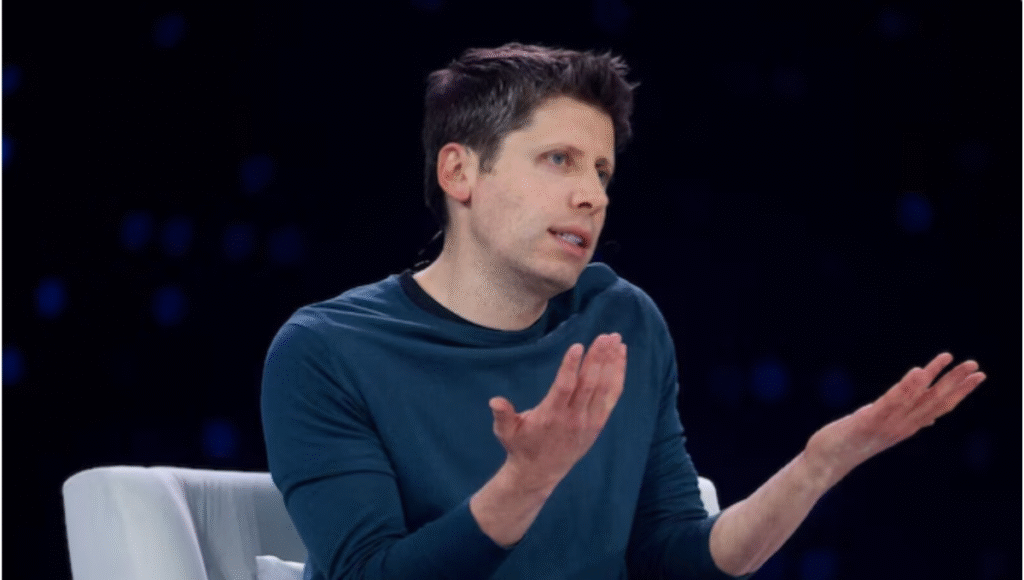
AI Superintelligence by 2030 Sam Altman Warns of Job Transformation and Massive Change
Artificial intelligence has been the talk of the town for years, but the pace at which it is evolving may be faster than most of us imagine. Sam Altman, the CEO of OpenAI, recently offered a glimpse into this rapidly approaching future, predicting that AI could achieve superintelligence by 2030—a development that could transform science, work, and daily life in ways we’ve only seen in science fiction. Speaking after receiving the prestigious Axel Springer Award, Altman described a world where machines could outperform humans not just in repetitive tasks, but in complex problem-solving and groundbreaking discovery.
Altman emphasized that the progress of AI has been “extremely steep,” noting that even today, systems like GPT-5 already demonstrate capabilities surpassing human intellect in certain domains. While these machines still struggle with tasks humans perform effortlessly, the trajectory is clear: AI is evolving rapidly, and the next decade may see it performing feats that were once considered the exclusive domain of human intelligence.
A New Era of Discovery and Innovation
According to Altman, AI could soon assist—or even independently conduct—scientific discoveries that humans cannot accomplish on their own. This concept, often described as superintelligence, could accelerate breakthroughs in medicine, climate science, and technology at unprecedented speed. Altman warns, however, that while this promises enormous potential, it also carries significant risks, particularly in the realm of employment.
The OpenAI CEO cautions that AI’s rise is likely to automate 30 to 40 percent of the tasks currently performed by humans. Rather than eliminating entire jobs wholesale, the transformation will be more about tasks within jobs being automated. This shift will require workers to adapt, learning to focus on skills that complement AI rather than compete with it. “The meta-skill of learning how to learn is becoming increasingly crucial,” Altman noted, highlighting adaptability as a key trait for the workforce of the future.
Balancing Progress and Human Values
Despite concerns about job displacement, Altman remains optimistic about humanity’s role in an AI-driven world. He rejects the dystopian vision of humans becoming irrelevant, instead portraying AI as a tool of immense power without intent of its own. The challenge, he says, is ensuring that AI aligns with human values and is deployed thoughtfully. “Even if it has no intentionality, asking it to do something could have consequences we don’t understand,” Altman said. “It is very important that we align it with human values.”
He recalled a vision shared by OpenAI cofounder Ilya Sutskever, who imagined a future where artificial general intelligence (AGI) treats humanity “like a loving parent.” For Altman, this means that AI can elevate human potential rather than diminish it—provided that ethical considerations guide its development.
From Chatbots to AI-Powered Devices
OpenAI is also exploring the future of AI hardware. Altman hinted at a new “small family of devices” that could revolutionize computing, allowing users to delegate complex tasks to AI seamlessly. These devices, he said, will prioritize user experience, reducing the need for juggling multiple apps and notifications, while integrating AI deeply into everyday computing. He describes this evolution as the third great shift in computing, following the mouse-keyboard revolution and the touchscreen era.
This vision extends beyond personal devices to broader societal roles. Altman foresees AI influencing decision-making across politics, business, and science, although he notes that human oversight will remain essential. “People still want humans signing off on major calls,” he said, emphasizing that AI is a complement, not a replacement, for human judgment.
Preparing for a Transformative Future
For individuals and businesses alike, Altman’s predictions underscore the urgency of preparing for change. The next decade could bring shifts unlike any humanity has experienced, with AI redefining industries, altering workflows, and reshaping daily life. Education, workplace training, and personal skill development will be crucial for thriving in a world where AI handles routine and complex tasks with unprecedented efficiency.
Altman’s reflections also carry a personal dimension. As a new parent, he shared how he plans to instill adaptability, creativity, and resilience in his child—qualities he believes are essential in a world dominated by AI. “Human desire for novelty and meaningful interaction will ensure people remain the centre of the story,” he said, underscoring the enduring value of uniquely human qualities.
The conversation around AI is often framed in extremes, from fear of mass unemployment to utopian visions of boundless potential. Altman’s perspective is more nuanced: AI will bring both disruption and opportunity. Its superintelligent capabilities, arriving as early as 2030, are a call to action for societies worldwide to adapt, innovate, and ensure that human values remain at the heart of technological progress.
Disclaimer: This article is based on public statements made by Sam Altman and is intended for informational purposes only. Predictions regarding AI timelines and impacts are speculative and subject to change as technology evolves.






